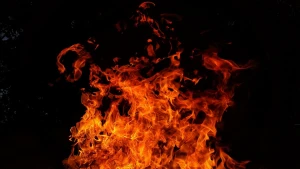
Bandera symbolizes struggle against occupation of Ukraine - historian Ponypaliak
Stepan Bandera, one of the ideologists of the Ukrainian nationalist movement, is a symbol of today's war, and his life symbolizes the struggle for Ukrainian statehood
Candidate of historical sciences Alina Ponypaliak shared her opinions with Espreso TV.
"Bandera is a symbol of the current war. If we take a survey, after February 24, more than 80% of Ukrainians support his figure. Communities are starting to rename streets and avenues in his honor. This shows that he is a symbol of the Ukrainian people against Moscow's conquest and aggressive policy," she noted.
According to Ponypaliak, Bandera's life itself is a symbol of the struggle for Ukrainian statehood.
"He was a revolutionary not only in theory, but in practice, and drew the attention of the world and other Ukrainians to this struggle. He united people. Now Bandera's name is trending: we see young people singing the "Bandera, Our Father" song, various videos on TikTok. This testifies to his popularity, because he is and has been the symbol of this struggle. Bandera is a symbol of the struggle of all Ukrainians against Nazism and Moscow imperialism, against the occupation of Ukraine," the historian believes.
She added that Bandera has become a symbol of Ukraine's indomitability. Ponypaliak believes that the verification of his name in Russian propaganda and attempts to demonize Ukrainians is the intimidation tactics targeting Russians by the Moscow authorities.
"The struggle of the Bandera supporters lasted until 1960. Then the last battle of the Ukrainian Insurgent Army took place in the Carpathians. After 1945, Ukrainians expected that a second front would open against Moscow, but this did not happen. And we see that this unfair decision for Ukrainians in the Second World War now has consequences. Moscow's imperialism was not condemned, in particular its cooperation with Nazi Germany. If communism had been condemned at the end of the Second World War as one of the totalitarian regimes that started that war, there would have been no consequences this time," the historian concluded.
- News













































